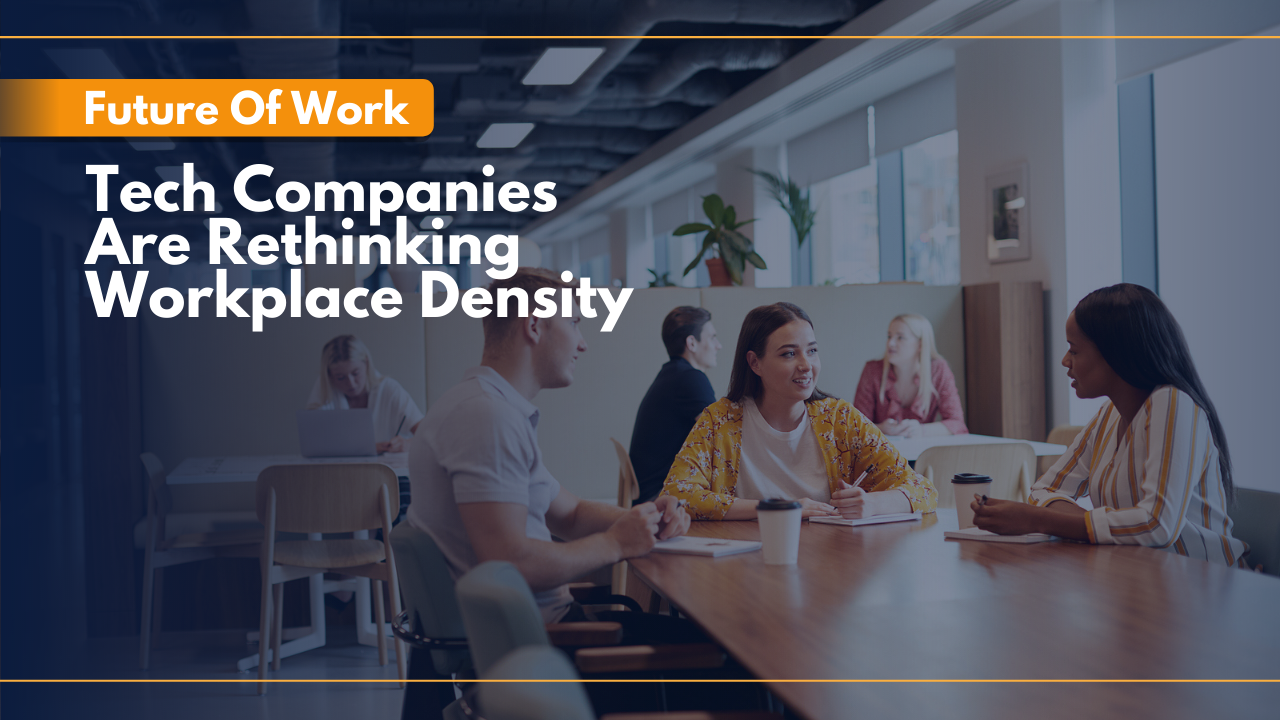- More than half of tech firms are considering shedding office space in the next twelve to eighteen months, according to new research.
- De-densification is driving an increase in flexible and remote work, and companies expect their workplace needs to shift.
- Though traditional office space may take a hit from an increase in remote work, flexible workspace operators could stand to benefit.
Savills’ latest research report, “Technology Practice Group: COVID-19 Impacts and Sentiment Survey”, found that more than half of technology firms are considering shedding office space in the next twelve to eighteen months.
The goal of the survey was to gauge the anticipated impacts of the coronavirus pandemic on companies’ plans for office space, in the short and long-term.
“Unsurprisingly, uncertainty is the most prevailing theme among the responses, with regards to space needs, workplace designs, and their organizations’ approaches towards flexible and remote work in the future.”
Despite the uncertainty, Savills was able to identify a few emerging trends:
- Expected dispositions: Technology companies are looking to dispose of at least some of their portion of office space in the near future.
- A rise in flexible and full-time remote work: Tech companies expect an increase in the percentage of their workforce working remotely when compared to pre-pandemic levels.
- Lack of consensus on future workplace density: More organizations expect they will need more rentable square feet (RSF) per seat in the future.
Returning to the Workplace and Workplace Density
The report found that 26% of technology organizations do not plan to return to the office in a pre-vaccine environment. As it currently stands, many companies are planning their return to the office for January 2021 “at the earliest”; however, many companies noted that the timeline for the return to the workplace could be pushed further out depending on infection rates and when a vaccine is deployed.
Interestingly, “many tech tenants are approaching office re-openings on a location-to-location basis.” Others remained steadfast on their decision to work remotely “until they (can) guarantee the safety of their employees.”
Either way, organizations expect their workplace needs to change as a result of the pandemic and an increase in remote work.
Savills found that:
- 64% of companies’ headcount growth projections were impacted by COVID-19.
- 82% of organizations anticipate needing less space than planned for the next 12 to 18 months.
- 55% of organizations anticipate to dispose of some office space in the next 12 to 18 months.
As organizations rethink their real estate strategy and footprint, there seems to be a popular theme going around:
De-densification.
“Before COVID-19, a majority of the tech organizations surveyed had a density planning target of less than 150 RSF per seat.”
As a result of the pandemic, 34% of organizations reported that they will require more RSF per seat in the future. Still, it is worth noting that 40% of organizations stated that they had not yet decided on an updated density planning target.
Based on survey responses, Savills identified “two camps of tech tenants” when it comes to imagining their organization’s workplace of the future:
- Some tenants are confident that workplace design will return to pre COVID-19 density
- Others believe that past space targets will no longer work in a post pandemic world.
Even if a company chooses to stay with the same percentage of RSF per seat, it is likely that a company’s overall real estate footprint will decrease, at least in the short-term. This will be a result of cost cutting efforts, an increase in remote work (which means organizations will have less need for space), and adherence to local guidelines on physical distancing.
Remote Work and Its Impact on Office Space
“59% of tenants responded that less than 10% of their workforce was full-time remote pre-COVID-19. When asked what share of their workforce they anticipate working remotely full-time in a post-pandemic world, only 16% of organizations expect less than 10% of their workforce being remote.”
Additionally, 94% of organizations stated that they expect remote work to be normalized in their organizations in a post-vaccine environment. 76% believe that full-time remote work will be normalized in their organizations.
With an increase in flexible and remote work on the cards, workplace needs are likely to shift. Specifically, workplace design is expected to change. “Pre-COVID, 46% of respondents operated in an all-open office environment. Post-COVID, only 22% expect to keep that layout.”
Though traditional office space may take a hit from an increase in remote work, it seems that flexible workspace operators stand to win in this scenario.
“62% of companies with a footprint in flexible office providers report that their approach towards flexible office space will not be impacted.”
More importantly, 26% of organizations stated that they expect to use flexible office providers for more of their office space locations, and 38% anticipate requiring more space per seat when using flexible workspace providers.

 Dr. Gleb Tsipursky – The Office Whisperer
Dr. Gleb Tsipursky – The Office Whisperer Cat Johnson – Coworking Marketing Maven
Cat Johnson – Coworking Marketing Maven Angela Howard – Culture Expert
Angela Howard – Culture Expert Drew Jones – Design & Innovation
Drew Jones – Design & Innovation Andrea Pirrotti-Dranchak – Competitive Advantage
Andrea Pirrotti-Dranchak – Competitive Advantage Jonathan Price – CRE & Flex Expert
Jonathan Price – CRE & Flex Expert Jeremy Fennema – Tech Innovation Alchemist
Jeremy Fennema – Tech Innovation Alchemist







